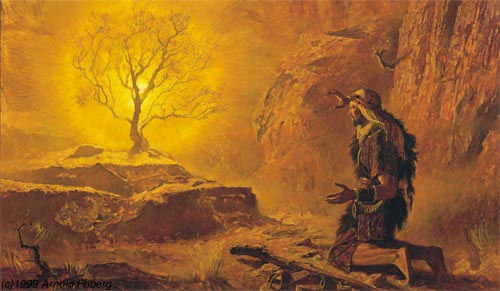How do you understand the notion of “Original Sin”?
If we suppose for just a few seconds, for argument’s sake, that the Garden of Eden story was left out of the Bible, what changes with some of our notions of Original Sin?
Thanks for your responses.
How do you understand the notion of “Original Sin”?
If we suppose for just a few seconds, for argument’s sake, that the Garden of Eden story was left out of the Bible, what changes with some of our notions of Original Sin?
Thanks for your responses.

Fire:
1. Normally destructive
2. A consuming chemical reaction
3. In art, symbolism, movies, and maybe in the human psyche, fire is seen as a living being, of sorts.
For example, witness lines of the film, Backdraft, 1991.
Robert De Niro’s character- Donald ‘Shadow’ Rimgale: It’s a living thing, Brian. It breathes, it eats, and it hates. The only way to beat it is to think like it. To know that this flame will spread this way across the door and up across the ceiling, not because of the physics of flammable liquids, but because it wants to. Some guys on this job, the fire owns them, makes ’em fight it on it’s level, but the only way to truly kill it is to love it a little. Just like Ronald.
Many times we function in life as if God is an idea. God may be getting frozen in our mind. Static. Stiff. Or maybe we think of God in relationship to things past: Bible stories, fixed doctrinal positions, the holy and immovable One.
Yet God is the only Living God. The Highest. All the other things we worship are dead, or they can make us numb, dead-like. Getting our fix of whatever…people, gossip, technology, gadgets, velocity, power, status, (etc. maybe you can think of others) are all tertiary distractions, fool’s gold. They don’t bring life, or growth, but instead more craving.
Let’s share a bit, shall we? Please list a dead god you’ve worshiped. (If you can, include some adjectives about it.)
Thank you for reading. :)
. . . when Moses was grown . . . he went out to his brethren and looked at their burdens —Exodus 2:11
Have you thought about discouragement in this way?
Your thoughts or comments are encouraged.

Scot McKnight has an intriguing post regarding Sharon Baker’s book Razing Hell: Rethinking Everything You’ve Been Taught About God’s Wrath and Judgment. His article here.
After you read these 7 considerations (from Scot’s post), will you please comment here?
1. Theodicy: how does God deal with evil if it, in effect, exists for ever in a hell-state? Does evil not continue to exist, even in spite of the statement in Revelation 21:1-4 that death and suffering will be no more? So, the issue here is squaring God’s goodness with eternal evil.
2. Eternal hopelessness: a traditional hell does not permit any hope after death for anyone, including those who have never heard. Is there a law that says God’s grace can only be active in the temporal sphere — that is, during our physical lifetime?
3. Eternal evil: does not the traditional view entail the view that God never really does purge his world of evil?
4. Justice vs. Love: the issue here is an old one. If God is love, how does justice fit in with that love. Is God ambivalent or split? An image of God that emerges for many is a cruel father who guides people to think of eternal punishment as an act of love.
5. Eternal divine violence: assumptions are that punishment is an act of violence and eternal punishment would mean God is eternally violent. She connects this view of God with acts of violence in history. She thinks God’s violence contradicts God’s love.
6. Retributive justice: again, a major issue is that God’s justice in the Bible — in Christ — is restorative but hell is a belief in a retributive justice that never becomes restorative.
7. Eternal punishment for temporal sin: how can it be just to punish a human being, who sinned temporally — that is over a life time (and no more), for an eternity for that temporal sin?

How should one read the Bible and study it?
What are spiritual practices, what are they for, and how does the use of the mysteriously named Lectio Divina benefit prayer and meditation on God’s word?
This Sunday, you will learn and experience this helpful prayer exercise for yourself with Lisa, and be better able to understand and utilize the Bible with Ed. You will be better equipped and motivated to grow closer to the Almighty God of the Bible through this engaging event.
If you’d like to find out more, or come, link here to the facebook event page.
Contact Ed, or me to visit your group in the near future. See you soon! :)